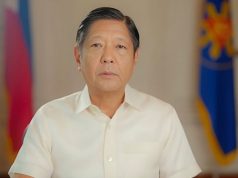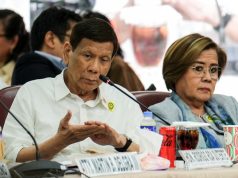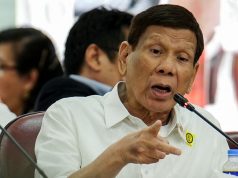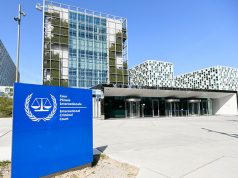MANILA, Philippines — Senator vowed to keep pushing for the enactment of a law grating free tuition in state universities and colleges despite the possibility of President Rodrigo Duterte’s vetoing the measure on the advice of his economic advisers.
But the Foundation for Economic Freedom, which bills itself as “a public advocacy organization dedicated to advancing the cause of economic and political liberty, good governance, secure and well-defined property rights, market oriented reforms and consumer protection,” backed a veto saying government “can ill afford to waste scarce public resources on the proposed measures.”
The FEF counts the likes of former Prime Minister Cesar Virata, former Socio-Economic Planning Secretary Dr. Gerardo Sicat, former Finance Secretary Ernest Leung, National Scientist Dr. Raul Fabella, and former World Bank resident representative Thomas Allen as adviser. Its board of trustees is chaired by former Finance Secretary Roberto de Ocampo.
The senators also refuted the contention of Budget Secretary Benjamin Diokno and Socio-Economic Planning Secretary Ernesto Pernia that the government cannot afford the P100 billion they said would be needed annually to implement a free tuition law.
Senator Paolo Benigno Aquino IV and Franklin Drilon said the chamber computes the annual requirement at only P25 billion.
Drilon said “we have incorporated P8.5 billion from the present budget” and “strongly argued that we need not to implement in its entirety the free tuition act on year one. In other words, we can phase it so that the other aspects of the law can be implemented after year one.”
Senator Juan Edgardo Angara, on the other hand, acknowledged that overriding a presidential veto is unlikely and said the more practical response should this happen is to refile the measure.
Angara also acknowledged that insertions made during the bicameral conference committee had bloated the budget requirement for implementation, adding that a refiled bill should contain more targeted subsidies as suggested by the Commission on Higher Education.
Senate President Pro-Tempore Ralph Recto agreed that a better version of the bill should be refiled in the event of a veto and that “the expansion of the bill’s coverage to cover ‘other school fees’ doomed it.”
“The bill’s original ambit was limited to tuition only. This was the Senate position. But the final version that was sent to the President’s desk expanded it, to cover ‘and other school fees,’” he said in a statement.
“Practicality dictates that views of the executive should be taken into consideration. If we re-file a bill that is a carbon-copy of the vetoed one then it will meet the same fate,” he added.
At the same time, he said the Cabinet members who advised Duterte to junk the bill specify the provisions they objected to or “better still, they can write their own version and then send it to Congress.”
He said Malacañang needs to participate in crafting a new measure.
“If they cop out, then how can they convince the promdi millennials that a tax in your 3-in-1 coffee is good, but free college is not?” Recto pointed out.
But FEF said the measure was “of doubtful effectiveness but also arguably anti-poor and inconsistent with the pro-poor orientation of the President’s development agenda” for the following reasons:
- First, the free tuition subsidy will benefit predominantly the well-off, as pointed out by the economic managers and PIDS fellows, Dr. Aniceto Orbeta and Dr. Vicente Paqueo. Only a small proportion of the subsidy will benefit the poor, since only a small percentage (12%) of them make it to state colleges and universities (SUCs).
- Second, there is no evidence that making already highly subsidized SUCs tuition-free will increase the overall tertiary enrolment rate, let alone the enrolment probability of poor children. Neither is there evidence that making SUCs free will improve the learning achievement of students. It is concerning, though, that there is no significant statistical correlation between higher education enrolment probability and ease of access to SUCs, on the whole and among the poor. This finding by Orbeta and Paqueo is worrisome because it raises doubts about the effectiveness of SUCs.
- Third, while we support the idea of an income-contingent student loan, it would be highly risky to invest huge amount of taxpayers’ money at this point, when there is no evidence yet that in practice such an idea will work in the Philippines. Given international and local experience regarding repayment issues, it is critical to first pilot test this innovative loan scheme locally, do a rigorous evaluation and, based on empirical evidence, make the appropriate decisions regarding scaling up.
FEF also argued that “there are better alternative ways of using taxpayers’ money that are more cost-effective and strongly pro-poor.”










